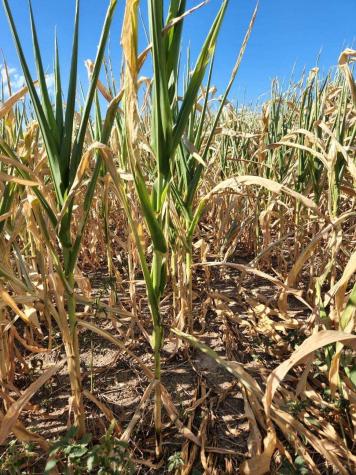
Tough culling decisions come with drought, forage shortages
COLUMBIA, Mo. – With dry weather and short pastures, Missouri cow-herd owners face tough culling decisions. One way to match cows’ needs to available grass is to sell cows.Give careful thought to which grass eaters go first, says Eric Bailey, University of Missouri Extension beef nutritionist. Under drought stress, identifying those cows becomes urgent.
Nitrate, prussic acid poisoning follow drought
COLUMBIA, Mo. – Nitrates and prussic acid build up in forages to levels dangerous to livestock during drought.Livestock face severe illness and even death after eating affected forages, says University of Missouri Extension agronomist Jamie Gundel.Nitrates tend to concentrate in the bottom third of the plant. It shows in the plant’s stem and stalks more than leaves, Gundel says.
Corn silage as a forage
COLUMBIA, Mo. – An emergency feeding situation is shaping up for Missouri’s beef producers because of the drought. University of Missouri Extension recently hosted University of Wisconsin agronomist Joe Lauer on the MU Extension Forage and Livestock Hour to discuss his research on corn silage as a forage.

Missouri dairy producers have their eyes on the drought
Missouri dairy producers face drought and heat challenges, adjusting feed and herd management to protect cows and maintain milk production.
MU guide looks at reconsidering silage pricing
COLUMBIA, Mo. – Drought throughout much of Missouri has renewed interest in how to price silage. An updated University of Missouri Extension publication looks at silage costs and revenues.
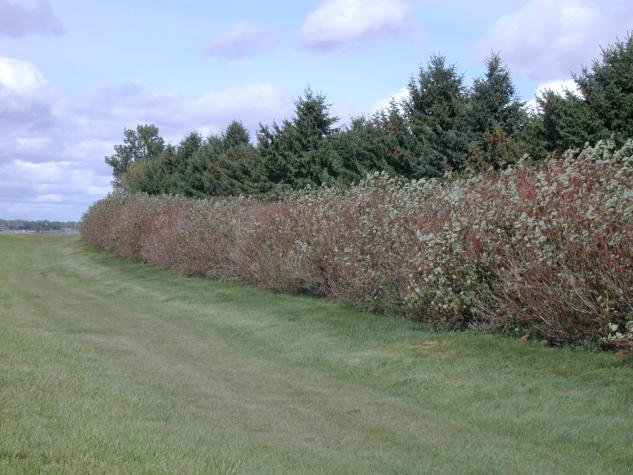
Windbreaks can help prevent herbicide injury
COLUMBIA, Mo. – Plant injury due to the off-target movement of herbicides such as dicamba and 2,4-D is one of the challenges to the production of specialty crops.“There are few short-term solutions to avoid plant damage when herbicides drift onto property other than growing plants in protective structures or planting crops and cultivars that are less susceptible to herbicide injury,” says University of Missouri Extension horticulturist…
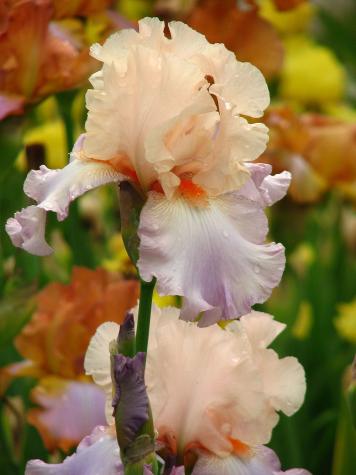
Time to transplant irises
Transplant irises from August to October for best growth. Space, divide, and care for vibrant blooms and healthy rhizomes.
Plants respond to heat differently than humans
COLUMBIA, Mo. – Extreme heat affects plants differently than humans.With triple-digit temperatures this summer, grain crop growers should understand how heat affects plants, says University of Missouri Extension agronomist Bill Wiebold.First, human concepts such as “heat index” or “feels like” do not apply to plants, Wiebold says. People and plants feel and react differently to heat.
Let no tree go to waste, Full Circle Forest Products - Rutledge, MO
Joshua Clarkweiss of Full Circle Forest Products transforms felled trees into custom lumber and furniture, promoting sustainability in Rutledge, Missouri.
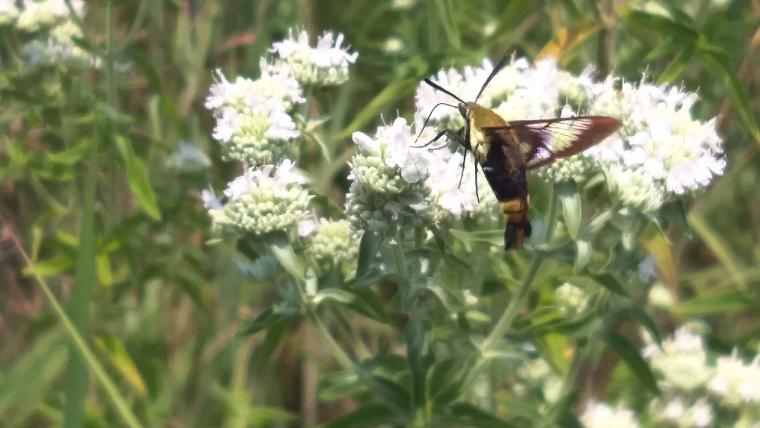
Supersized moth looks like a hummingbird
Discover a giant daytime-hovering moth that mimics a hummingbird, feeding at flowers while emitting a soft hum.
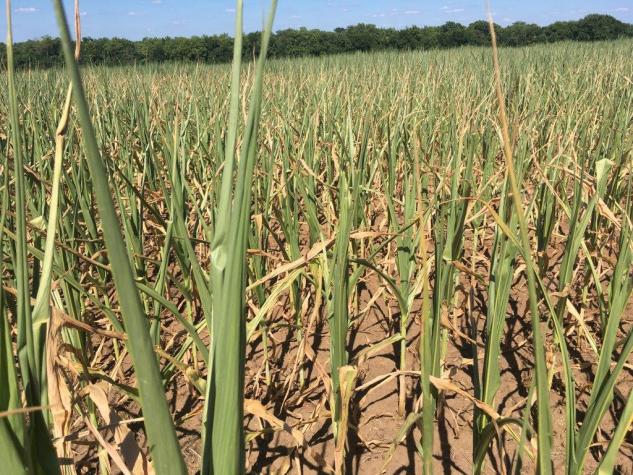
MU Extension resources for farmers amid deepening drought
Resources help Missouri farmers manage crops, livestock, and hay during worsening drought conditions.
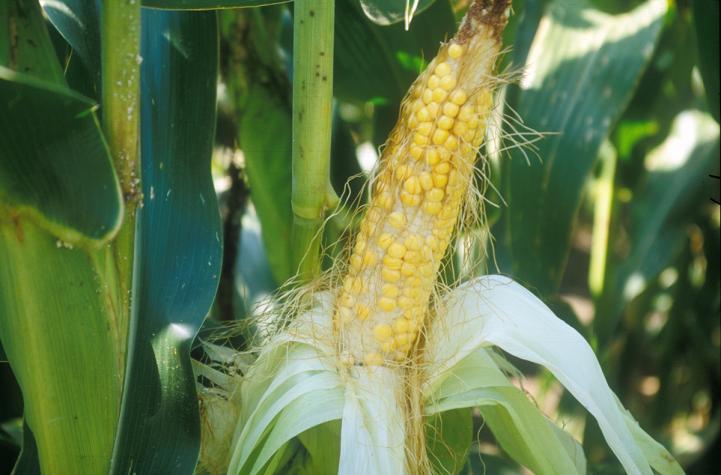
Lack of rainfall during corn's R1 stage spells trouble
Lack of rain during corn's R1 stage can severely impact kernel formation and reduce yields, with drought stress leading to irreversible damage.
Survey seeks worker input on recovery friendly workplaces
A statewide survey seeks employee feedback on workplace support for substance use recovery to help design Recovery Friendly Workplaces across Missouri
Silage-making reminders
SEDALIA, Mo. – While it is still too soon to sound the alarm on “drought,” parts of the state are becoming severely dry, said University of Missouri Extension livestock specialist Gene Schmitz.

MU Extension crops podcast debuts
New podcast offers expert insights on crop production, management tips, and the latest ag research for Missouri farmers.
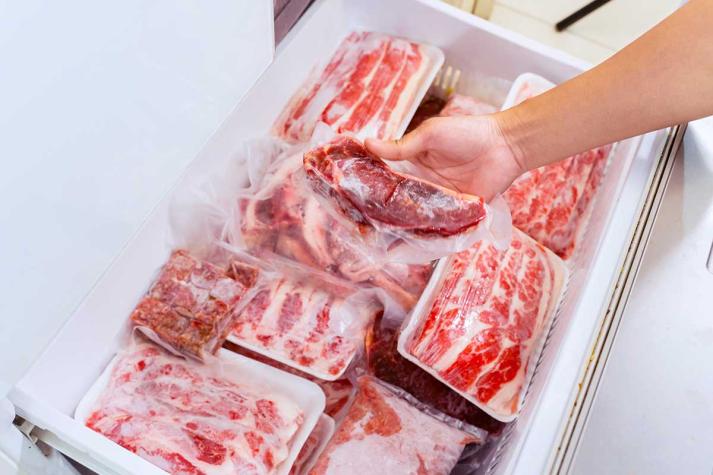
How to buy meat directly from the farm
COLUMBIA, Mo. – One option for consumers buying meat is to purchase directly from the producer. A new University of Missouri Extension publication offers guidelines for buying all or part of animal from a livestock producer and having the meat processed and packaged.
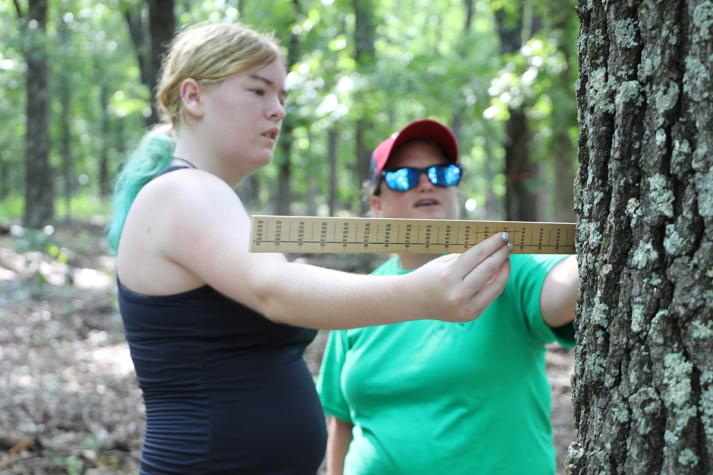
4-H primitive camping at Wurdack
COOK STATION, Mo. – Five Missouri 4-H youths took part in a first-ever primitive camping experience June 16-17 at the University of Missouri’s Wurdack Extension and Engagement Center in Cook Station. The campers were Neva Trosper, of Dent County, and Annabelle Edmonds, Connor Briggs, Wyatt Bobo and Evan Haberberger, all of Franklin County.

Rose rosette continues to plague garden roses
A viral disease transmitted by microscopic mites is destroying garden roses—learn symptoms, transmission, and what actions gardeners should take.

Waterlily: Easier to grow than you might think
Waterlilies may look delicate but they are hardy and rewarding plants. With sunlight and still water, even beginners can grow them successfully.
Missouri Leads the Nation With Passage of Good Neighbor Week Bill
Missouri marks the first Good Neighbor Week from Sept. 28, encouraging connections and community across the state.
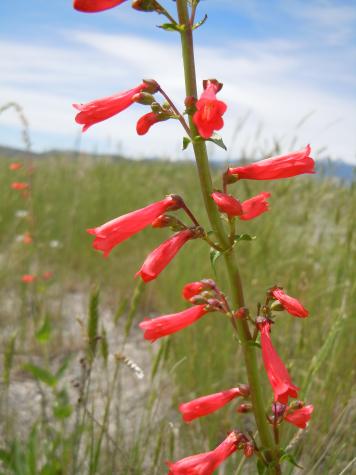
Firecracker penstemon explodes with patriotic color
COLUMBIA, Mo. – Flowering stems of firecracker penstemon pop with color and add a burst of red flowers to landscapes in summer. Firecracker penstemon (Penstemon eatonii) is just one of about 270 species of penstemon, also known as beardtongue. “Its showy stamens protrude from the flower and resemble a hairy tongue,” says Michele Warmund, University of Missouri Extension horticulturist.
Serving children with differing abilities, Unearth Potential - Joplin, MO
Providing ABA therapy and support to children with autism, ADHD, and developmental delays while aiding families and caregivers.
Y partnership keeps seniors connected
This month we feature Sue Robison, county engagement specialist in Carroll County, with Bret Lyon and Kathy Lock of the Carroll County YMCA.
Soybean Cyst Nematode: Out of Sight, Out of Mind?
Soybean cyst nematode (SCN) can substantially reduce yield, but it is not always obvious when the nematodes (Figure 1) are present. Leonardo Da Vinci's quote: "We know more about the movement of celestial bodies than about the soil underfoot" seems somewhat appropriate when discussing SCN levels in the soil.
Top 3 emerging disease issues going into 2022
#1 Tar spot of corn Who: Tar spot of corn, Phyllachora maydis
